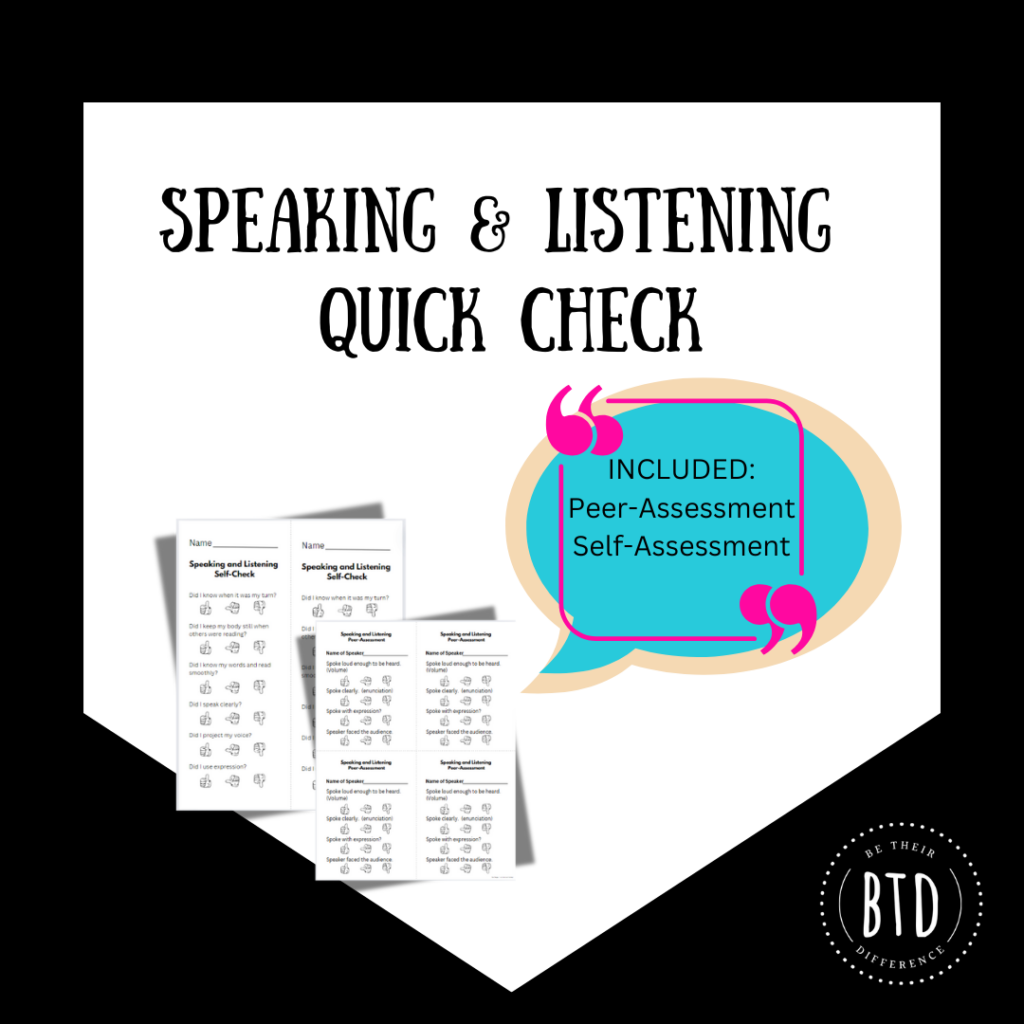Explicitly Teach “Being the Speaker”
- Speaker Posture – face your audience (even when presenting something that is on the board)
- Volume – are you speaking loud enough for everyone in the room to hear you?
- Enunciation – are you mumbling? or speaking clearly?
- Expression – is there any emotion in what you are saying?
When you teach these skills and practice them, you can even use a rubric to assess these things: posture, volume, enunciation, and expression. You can assess by simply asking the class to give a thumbs up, down, or middle.
Practical Strategies for practicing Speaking Skills
Morning Meeting
Conducting a morning meeting is a perfect time to allow students to share what they did the night before, read the date, weather, etc. Speaking skills can be practiced in many ways during a morning meeting. You may even teach students how to introduce themself, how to introduce friends, share different ways to say good morning, etc.
Table Talk
This is a time when you give your students a topic to talk about and you just give them time to talk. When doing this, having already taught them about posture, volume, enunciation, and expression, you could focus on one of those components of speaking. You can also use this time to practice self-assessment/peer assessment.
Would you Rather
Give your students a simple would you rather question and allow them to speak with a partner or in front of the whole class. It’s fun to have students make up the questions or you can find plenty of “Would you Rather” games and books on Amazon.
Reader’s Theater
This is by far one of my favorite strategies for working on speaking skills. Reader’s Theater are most commonly used for building reading fluency because they are practiced over and over and then performed for peers or parents. This gives the feeling of a performance rather than casual speaking. You can use a speaking/listening rubric (or score sheet) to provide the speaker with feedback. You can find many great Reader’s Theater guides or even write your own!
Book Reviews
After reading a book, have your student present a Book Review! This helps the rest of your class find great books that may interest them and also gives your students a chance to practice speaking in front of the class.
Star Student/Student of the Week
Many teachers feature students by having a Student of the Week or Star Student. There are so many amazing ideas for making students feel great while getting to know them. However, allowing them share is a great way to be intentional about practicing the speaking skills.
Shared Writing
Kids love to share what they have written! The more they do it, the more comfortable they become with sharing. You could make it fun by using a podium, music stand, or even a fun teacher microphone!
Informal/Formal Assessments
You can assess speaking skills informally/formally, anytime your students are asked to speak. By using a simple thumbs up, down, or middle you can help students understand what they need to improve on. This can be used as a self-assessment or a peer-assessment.
Check out my Speaking/Listening Rubric Here.

